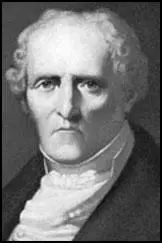Charles Fourier

Charles Fourier was born in Besancon, France, on 7th April, 1773. The son of a cloth merchant, he was educated at the local Jesuit college. After serving the the French Army he worked as a clerk in Lyon.
In 1808 he published his first book, The Social Destiny of Man. In the book Fourier criticized the immorality of the business world, arguing that "truth and commerce are as incompatible as Jesus and Satan." In the book Fourier advocated a new socialist system of cooperation. He suggested that 'phalanxes' should be established. These would be scientifically planned to offer a maximum of both cooperation and self-fulfillment to their members. Fourier suggested that these communes should contain about 1,600 people and should attempt to be compatible with each member's "natural talents, passions, and inclinations".
The ideas in the book influenced writers such as Alexander Hearken, Peter Larva, Pierre-Joseph Proudhon, Prince Kropotkin, Ralph Waldo Emerson and Henry David Thoreau. Others like Karl Marx and Frederick Engels accused Fourier of being "utopian" and attempted to develop a more scientific theory of socialism.
One of Fourier's supporters, Victor Considerant, established a newspaper in order to promote the cause. Others attempted to establish their own phalanstery. This included one at Rambouillet in France that was under-capitalized and eventually went bankrupt (1834-36). Another, more successful attempt, was made by George Ripley at Brook Farm in Massachusetts (1841-46).
Although no long-term phalanxes were established, Fourier's ideas influenced a generation of socialists, anarchists, feminists, pacifists, internationalists and others questioning the morality of the capitalist system. Even Karl Marx and Frederick Engels used Fourier's ideas to develop their theory of alienation.
Fourier also published The New World of Communal Activity (1829) and The False Division of Labour (1835). However, his attempts to find a rich benefactor to fund a phalanstery ended in failure.
Charles Fourier died in Paris on 10th October, 1837.
